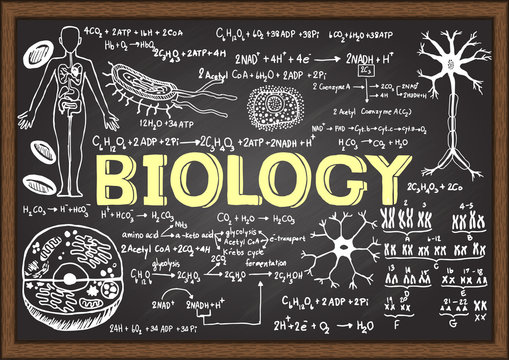
Biology Course Summary
1. Introduction to Biology
-
Definition of biology: the study of life and living organisms.
-
Characteristics of life: organization, metabolism, homeostasis, growth, reproduction, response to stimuli, and evolution.
-
Scientific method: observation, hypothesis, experiment, analysis, and conclusion.
2. Cell Biology
-
Cell theory: All living things are made of cells; the cell is the basic unit of life; all cells come from pre-existing cells.
-
Cell types:
-
Prokaryotic (bacteria, archaea)
-
Eukaryotic (plants, animals, fungi, protists)
-
-
Cell organelles: nucleus, mitochondria, chloroplasts, endoplasmic reticulum, Golgi apparatus, lysosomes, etc.
-
Cell membrane: structure and function, selective permeability.
-
Transport: diffusion, osmosis, active transport, endocytosis, exocytosis.
3. Genetics
-
DNA & RNA: structure, replication, transcription, translation.
-
Mendelian genetics: dominant and recessive traits, Punnett squares, genotypes and phenotypes.
-
Mutations: causes and effects.
-
Genetic technologies: CRISPR, cloning, genetic engineering.
4. Evolution
-
Natural selection (Darwin): variation, overproduction, competition, survival of the fittest.
-
Speciation and evolutionary trees.
-
Evidence for evolution: fossils, comparative anatomy, molecular biology.
5. Ecology
-
Ecosystems: biotic and abiotic components.
-
Food chains/webs, energy flow, trophic levels.
-
Biogeochemical cycles: water, carbon, nitrogen.
-
Population ecology: growth curves, limiting factors, carrying capacity.
-
Human impact: pollution, deforestation, climate change.
6. Physiology
-
Human body systems:
-
Circulatory
-
Respiratory
-
Digestive
-
Nervous
-
Muscular/Skeletal
-
Immune
-
Reproductive
-
-
Homeostasis and feedback mechanisms.
7. Plant Biology
-
Photosynthesis: light and dark reactions.
-
Plant structure: roots, stems, leaves, xylem, phloem.
-
Plant reproduction: seeds, flowers, pollination.
8. Biotechnology & Modern Topics
-
Genetic modification (GMOs)
-
Cloning and stem cells
-
Bioethics
- Teacher: Admin User